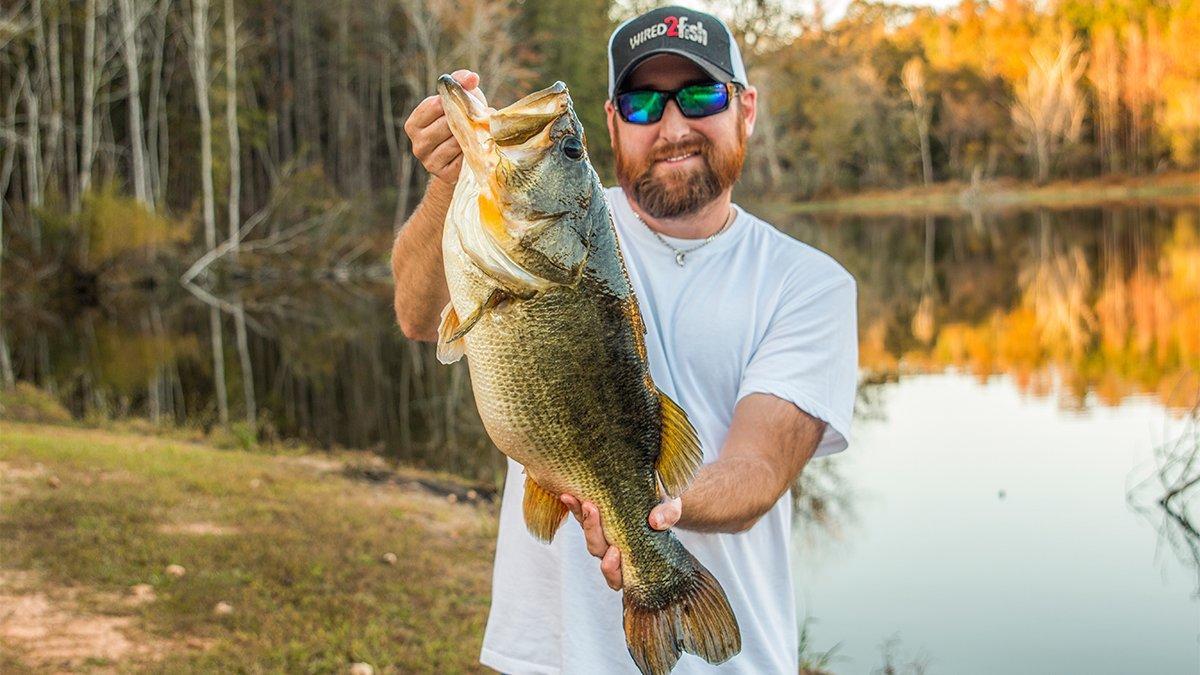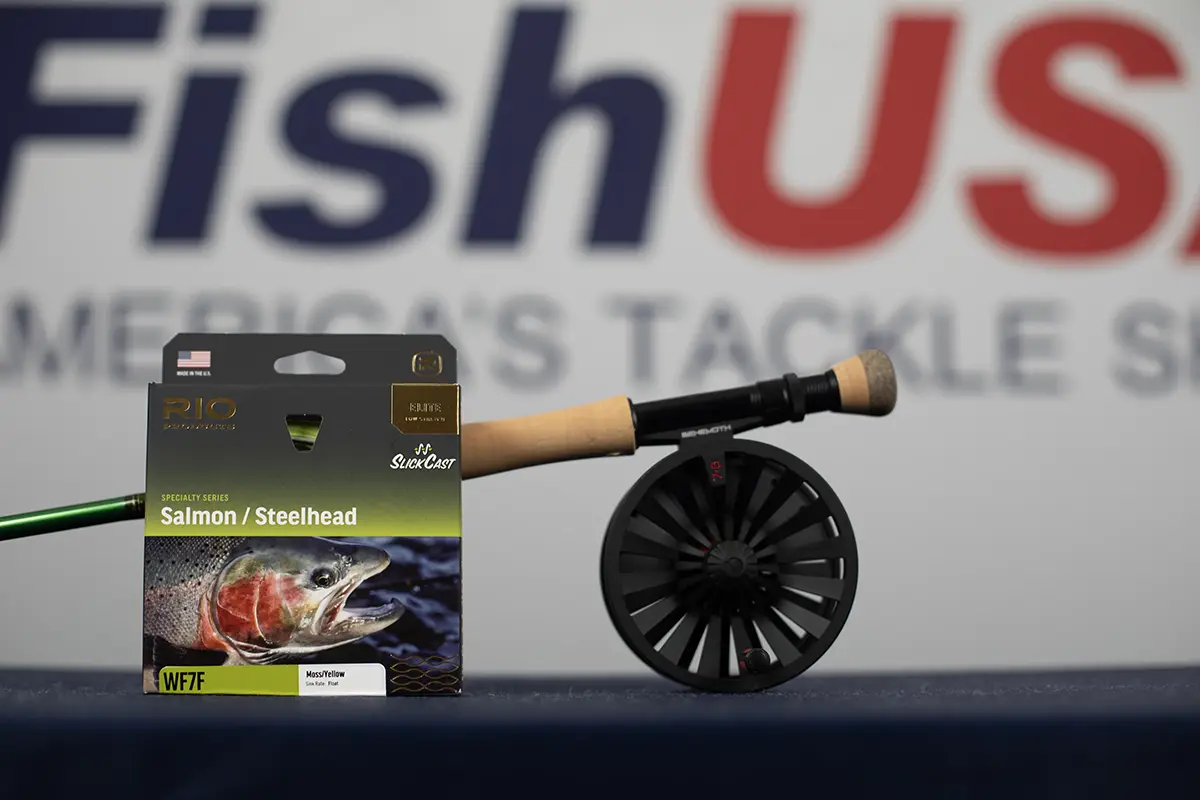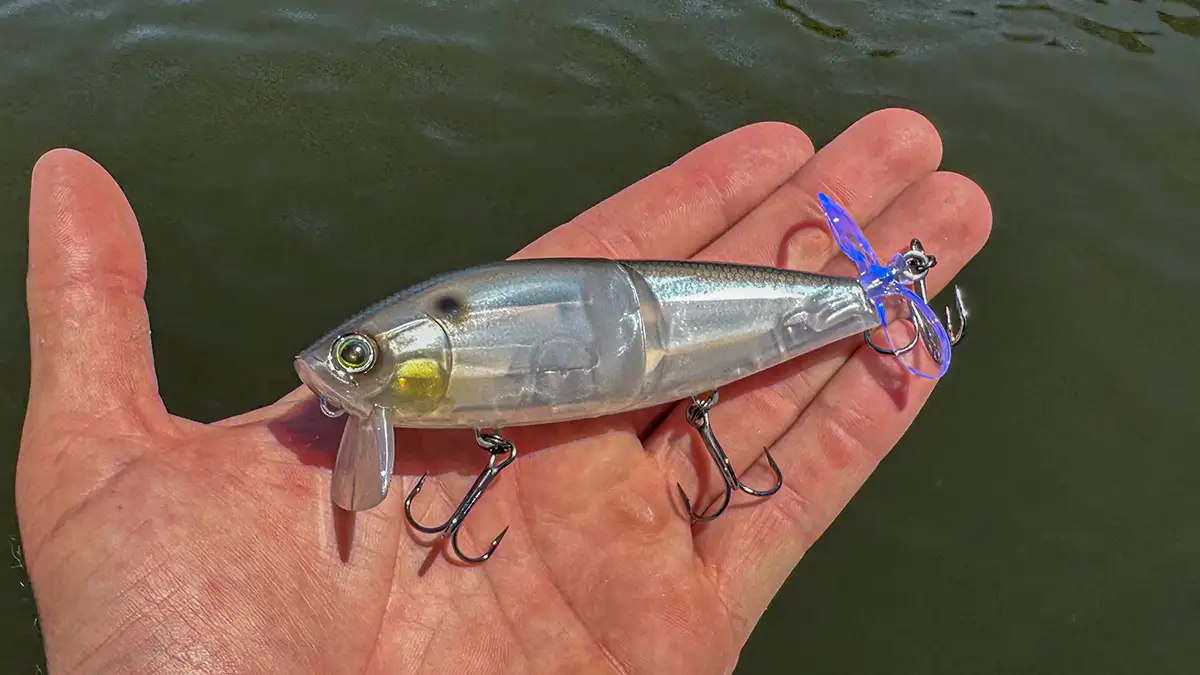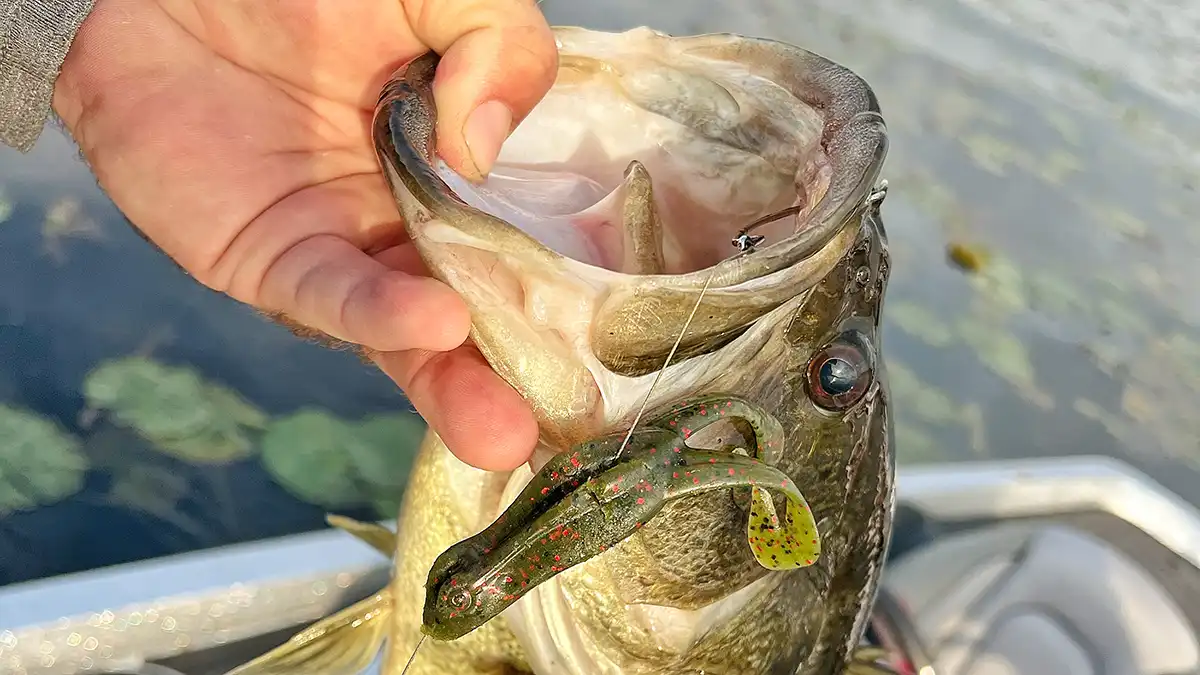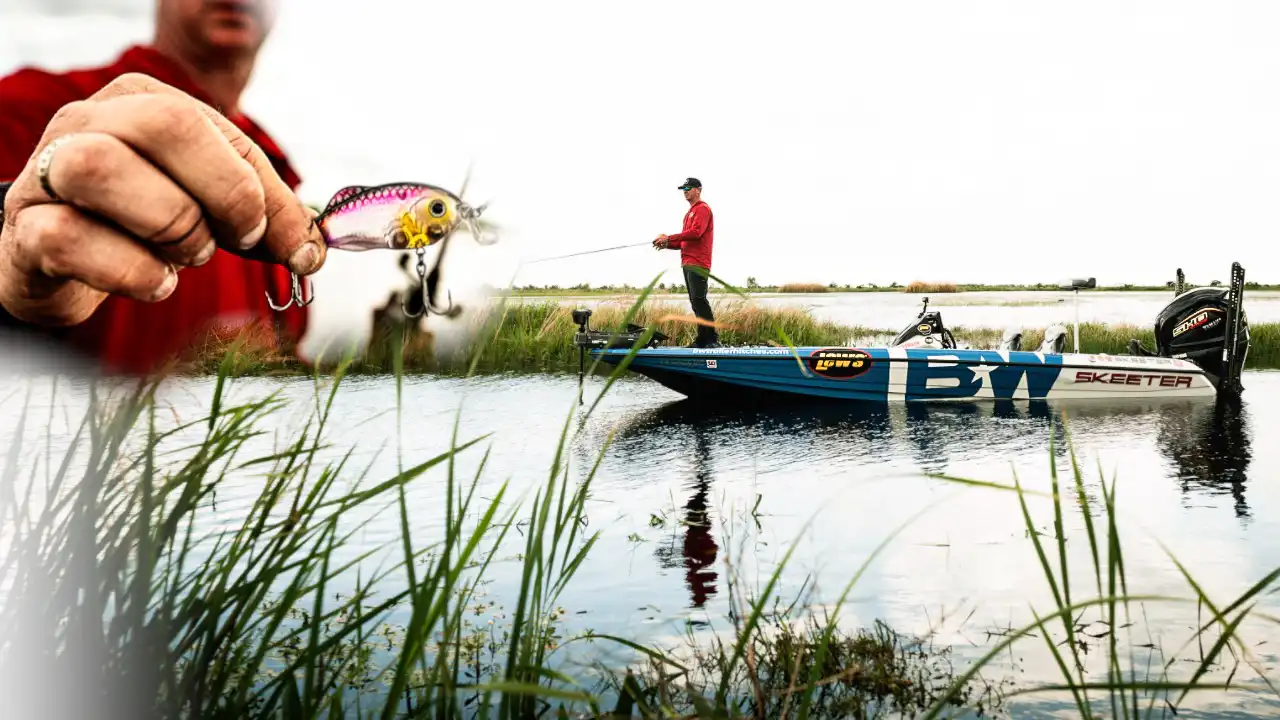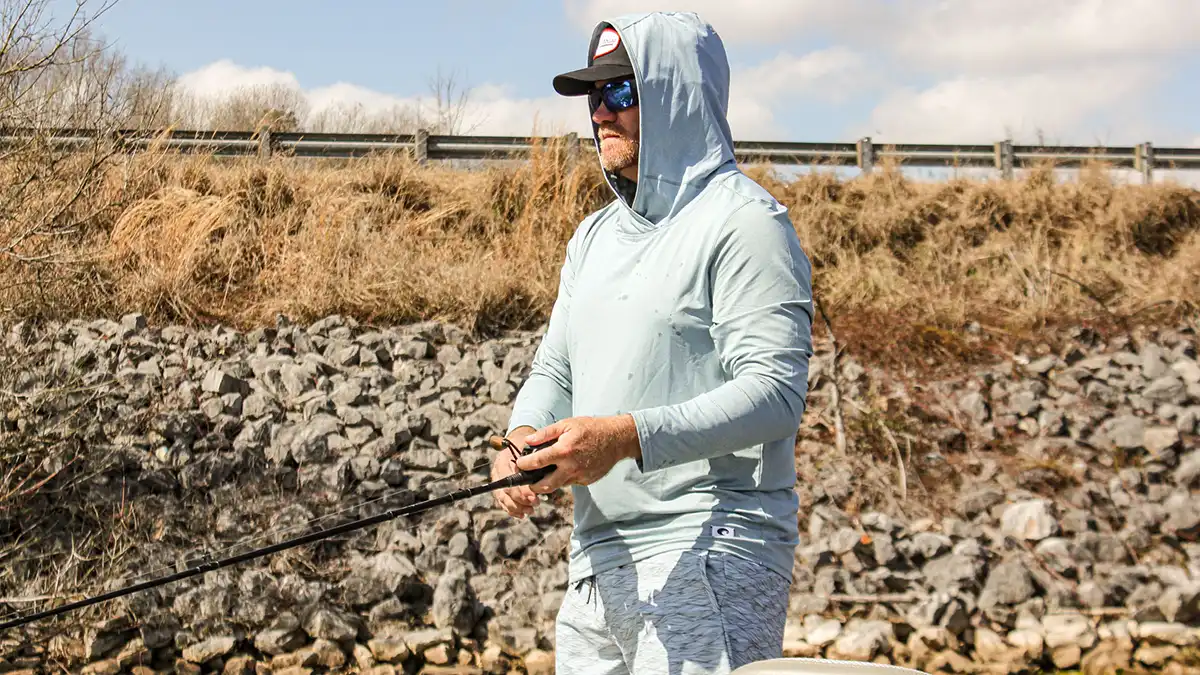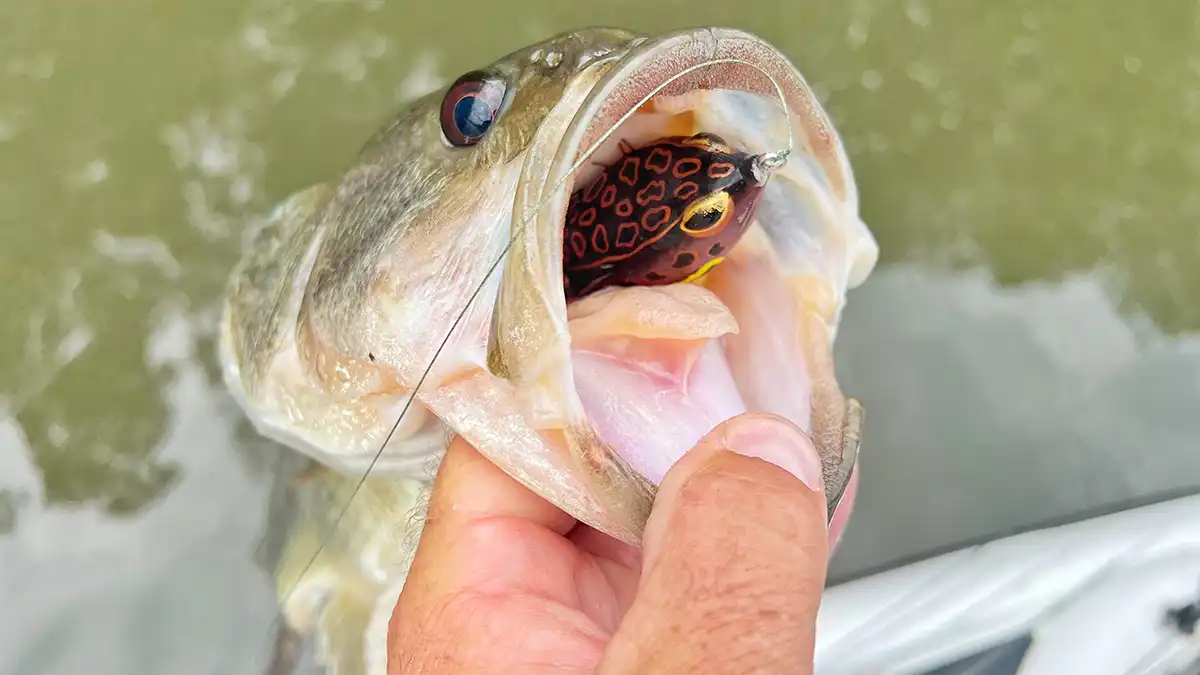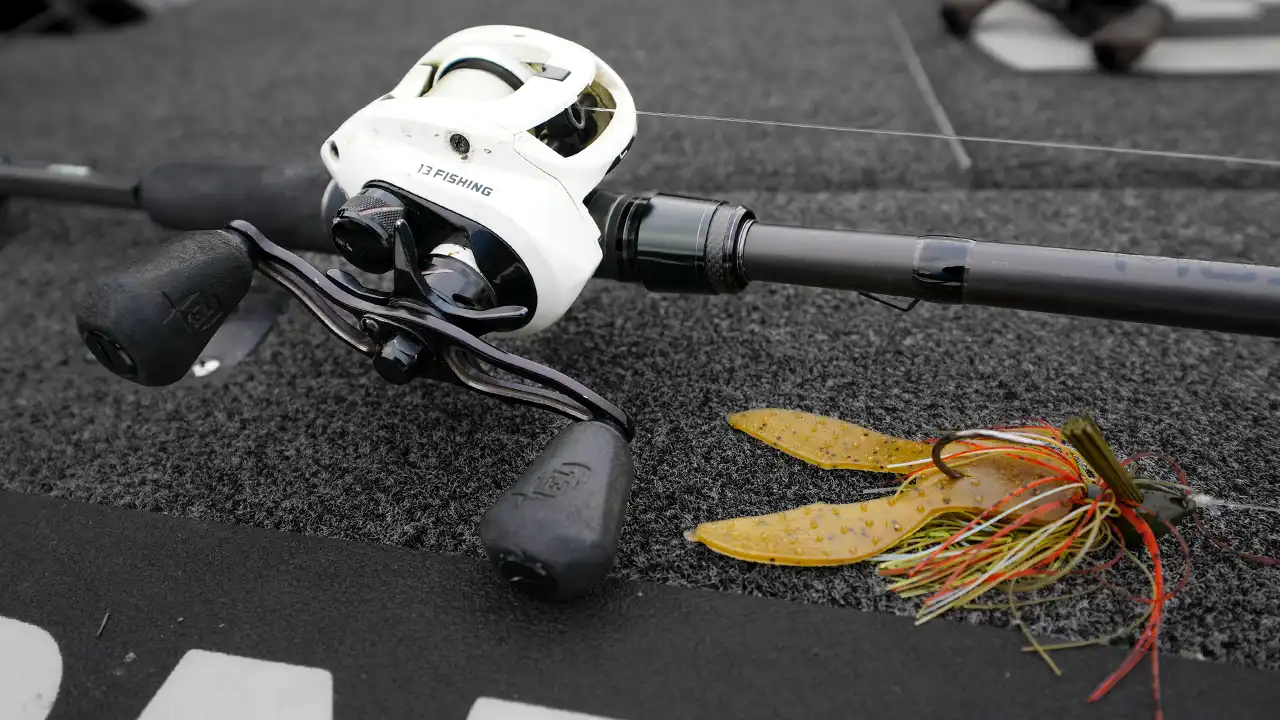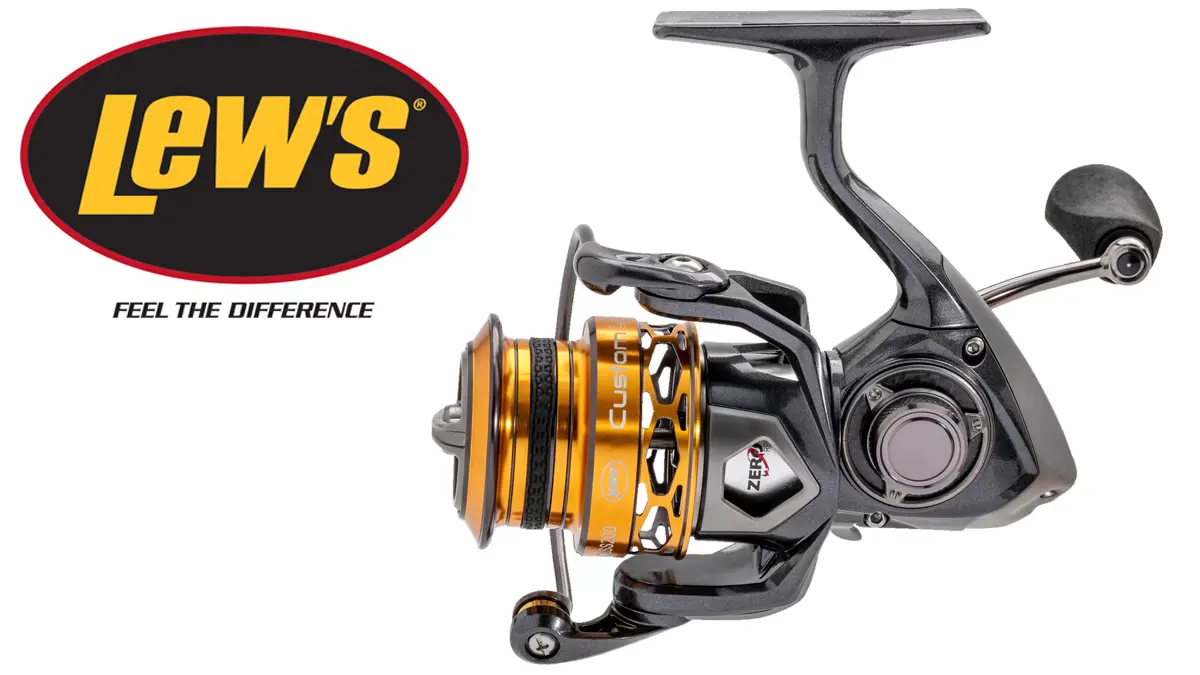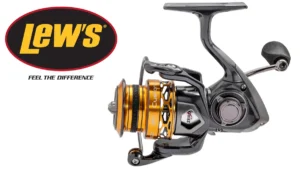I’m not one of those big-bass hunters that you frequently see in the western states; I don’t even own a single big swimbait. Of course, I love to catch big ones as any red-blooded bass angler does, but I also like getting a lot of bites. I always kind of figured that when it was “my time” to catch one of those elusive double-digit bass, it would just happen.
I reckon that 5:16 p.m. on November 2, 2017 was my time. I’ll remember it until they throw me in the ground.
The catch itself was awesome, but after I finally got calmed down enough to really process things and analyze every little moment and decision, I realized that this giant bass taught me a few lessons that I’ll take with me for the rest of my fishing days.
I’ll go through what actually happened, then I’ll discuss the important takeaways from this special (and blessed) occasion.
Here’s how it happened
On any other November afternoon, you’d probably find me sitting in a deer stand overlooking a hardwood ridge at the farm; but this hasn’t been an ordinary fall by any means. With temperatures well above the 80-degree mark, it was difficult to find the motivation to dress in full camouflage and go to war with mosquitos big enough to carry me like an osprey into the next county.
After being plugged up to this computer all day, I just had to get out of the house for an hour or two. So I grabbed one rod and headed to a very private 4 1/2-acre pond that I have intensely managed for seven years.
The fishing sucked, to be honest. After beating the banks for an hour, I hadn’t had a single bite and I was just about to hop in the truck and head back home for supper. As I was about to leave, the owner of the pond came down from his house and we started to chew the fat about, you guessed it, deer hunting. I wasn’t in the mood for fishing and I was kicking myself for not being in a tree.
As we were talking, I was just casually pitching my Texas rig to a laydown; I guess you could say I was just practicing my form. I made the same exact pitch, to the same exact branch for 20 minutes. I had no intention of catching a bass, but sure as heck, I felt the slightest “tick” on the end of my line.
The fight
Surely that was a bluegill. Maybe even a crappie. Right?
I held my rod still and I felt the fish begin to pull the rod slowly towards the water; I still thought it was a bluegill. Then I saw my line take off towards deep water.
It was a ded gum bass. A big bass.
I set the hook and immediately she started making her way towards the surface. Sure enough, she jumped and I just about lost all control of my bodily functions. I cussed. I prayed. I blacked out for a second or two.
I had handled 10-pounders at media events in the past and this was bigger. They always say that “you’ll know” when you meet the woman of your dreams and that might be true, because I “knew” that I had just informally met the bass of my dreams. It’s a feeling I cannot describe and someone can’t understand until it happens.
I chased her down the bank, frantically emptying my pockets of my cell phone, wallet and keys; I had no problem taking a swim to get my hands on her. She tail-walked across the surface two more times and as quickly as it all started, everything slowed down. She just gave up. She tried her damndest to escape and was a worthy adversary, but finally—at long and blessed last—I won.
After 29 years of sacrificing time, money, friends, girlfriends and leaving better-paying jobs to follow this unexplainable passion, I won.
She weighed 13.14 pounds and measured 25 inches long and 23 1/2 inches in girth. I gently released her back into the pond and as she kicked her tail and soaked my sweaty face, it was her way of getting even. It was the best middle finger I’d ever received.
Takeaway No. 1: When in doubt, retie. Period.
When I go on my afternoon pond trips, I probably don’t take them as seriously as I should; it’s my playtime and if I lose a fish, it’s not the end of the world. I don’t get all wound up like some others might. It’s just fishing, it’s really not that big of a deal in the grand scheme of things.
With that being said, I rarely retie at the pond. I had probably caught 15 fish over the last few weeks on this old, crusty Texas rig. I felt one small knick in my line and something in my gut told me to retie immediately, so I did. On any other day, however, I would have blown it off.
I would have never caught that fish if I didn’t retie. I’m absolutely positive of it. I’m a God-fearing man, so maybe He was telling me, “Dude, I’m about to give you one chance at this. Don’t screw it up. I’m trying to help you out, here.”
I would have never thought I’d catch a 13-pounder, much less in November in the middle of my hunting season. That goes to show you that you’ll never know when it’s going to happen. These giant bass are just like a trophy whitetail—they rarely mess up. But when they do, you’ll have one (read that again… one) chance at ‘em. It’s up to you to be ready.
Takeaway No. 2: Cinch your drag.
I wrote an entire article about this topic and I felt so strongly about it that we filmed a video of my thoughts on it, too (you can watch that video above). I do not—and will never—rely on my drag when using a casting reel. I cinch that sucker down and it stays that way. Nobody will convince me any different. Let me explain why.
The hook didn’t penetrate the roof of this fish’s mouth; it actually skin-hooked the roof of her mouth. I barely touched the hook when I landed her and it fell right out.
If I had been relying on my drag during the fight, that hook would have popped right out the moment she turned her head. Even the slightest quarter-second delay in my reel would have put too much pressure on that hook.
I could feel when this bass—and many other 8 and 9-pound fish I’ve previously caught—was about to make a run. Again, it’s hard to articulate but you can almost feel ‘em loading up to make a last-ditch effort to break free. I had my thumb bar pressed down and I was using my thumb as the drag, which allowed me to be ready and manually loosen my tension on the spool when I felt her start to get sassy.
I’ll repeat: Any delay in that drag would have caused me to lose that fish. If you do something different and it works for you, that’s awesome. But I’m not going to risk it.
Takeaway No. 3: If it looks good, make repeated casts.
You probably thought I was exaggerating when I mentioned making the same pitch for 20 minutes. I don’t blame you, because it sounds insane. But that’s exactly what happened.
Now, I don’t expect any of you to flip a laydown for 20 minutes. That’s not very practical and admittedly, this situation was a bit of an anomaly. But it does underscore the importance of repeated casts to a lesser degree.
The large majority of my big fish catches—let’s say over 6 pounds—actually occur after several casts to the same spot. Going back to my trophy whitetail analogy, big bass don’t mess up much. But even if they’re not actively feeding, repeated casts can and will tick ‘em off. They like to “own” particular pieces of cover and they don’t want any competition, so even if they don’t bite your lure after the first cast, they’re not going to tolerate it in their area for long.
Takeaway No. 4: Luck is when preparation meets opportunity.
This special catch has not and will never go to my head. I’ll be the first to tell you that, in fact, I got pretty darn lucky that day. I have absolutely zero problem admitting that. I keep telling people, “Even a blind hog finds an acorn every now and again.”
I just happened to run across an acorn… a 13-pound acorn.
But I am a big believer that most of us will have an opportunity at the fish of a lifetime; but it’s all about your preparation. Do you have the right gear? Do you understand how big bass fight compared to smaller ones? Are you targeting high-percentage areas? Are you confident in your fish-landing abilities? When the moment finally happens, are you able to switch into game mode and execute?
All of that stuff matters and I believe that’s what defines “luck” in bass fishing. A prepared angler will be much luckier than one who is unprepared.
Takeaway No. 5: Don’t be fooled by the bite.
Some of the largest bass I’ve caught on bottom-contact presentations—jigs, Texas rigs, Carolina rigs and the like—have bit the lightest. This bass was no different. It was the lightest bite I’ve had in months.
It made me ask myself an interesting question: How many big bass are we missing because we either A) don’t feel the bite or B) monkey around with the hookset because we think it’s a 12-incher?
I’ll answer my own question: A bunch.
There are a lot of people out there who roast the fishing industry for its thinly veiled marketing pitches; they think that all this newfangled technology is just a cash grab. There’s no doubt that some of it is, but you’ll find that in any industry. Catching this bass opened my eyes to the importance of good gear, especially in terms of sensitivity.
It’s important to use gear that lets you feel exactly what your bait is doing at all times, but that doesn’t mean you have to spend $300 on a rod. Just go to your local store and test some out and if you can find an affordable option that’s more sensitive than others, buy that one. I also suggest using fluorocarbon for most of your applications. It’s not a marketing ploy—I promise that it makes an enormous difference in sensitivity.
Remember: You have to feel the bite before you can catch the fish.
Takeaway No. 6: Beware of social media.

After I caught my 13-pounder, I remember telling my girlfriend, “I’m going to get smoked when I post this photo on Instagram.” I knew it was coming because unfortunately, that’s the world we live in. There are a lot of negative people in this world and thanks to social media, they all have a voice. Lovely, isn’t it?
Any time you post a bass photo to social media with the exact weight in the description, you’re going to have naysayers chime in and claim that it doesn’t really weight that much. I don’t care if it’s a 4-pounder; a few folks will say you’re a (insert insult here) and claim it’s only 3 pounds. I have a hard time comprehending this mindset, but whatever. They’d argue with a fence post if it could talk back.
I think this is largely due to the emergence of the small, portable action cameras with which many anglers shoot their bass photos. These cameras have wide-angle lenses, so people can stick 3-pounders close to the lens and guess what? Now they look like 7-pounders. All you have to do is hide your hands, knuckles and elbow behind their jawbones and they all look like giants.
In my opinion, this has really distorted people’s view of true, trophy-class bass. I could have dangled the bass vertically, hid my hand behind its mouth to take away any possible size reference, held it 6 inches from a wide-angle lens and it would have looked like the new world record. But I chose to shoot the photo with a standard lens to avoid exaggerating its size; and I got hammered by several people, just as I expected. Heck, I could have posted a photo of the bass hanging on the scale and I’m sure someone would have told me my scale was broken.
So just be warned that when you catch the bass of a lifetime and post its weight on social media, you will have some people projecting negativity. If you weighed and measured the fish and performed your due diligence, forget those folks. Don’t let them ruin the moment you’ve worked so hard for.
One last thing: Here’s what I caught her on.
I know that’s going to be a popular question, but I didn’t want to dominate this piece with a bunch of product links. So I saved it for the end. I use all of this gear on a regular basis and there’s only one reason for that: Because I trust it.
- Bait: Zoom Baby Brush Hog (watermelon purple flake)
- Rod: 7-foot, medium-heavy Lew’s Custom Speed Stick Casting Rod
- Reel: 7.5:1 Lew’s Tournament MB Speed Spool Casting Reel
- Line: 15-pound Seaguar AbrazX
- Hook: 3/0 Gamakatsu Offset EWG
- Weight: 3/16-ounce VMC Tungsten Worm Weight


